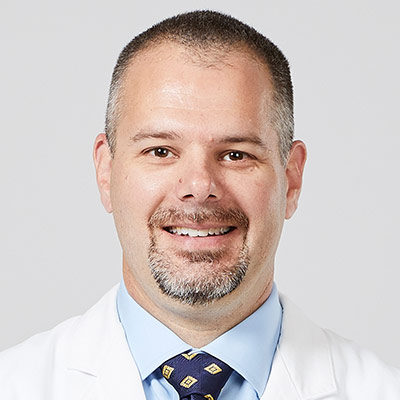

Carl Schmidt, a surgical oncologist specializing in cancers of the liver, pancreas, and stomach, will join the West Virginia University Cancer Institute in July.
Schmidt will serve chief of surgical oncology and surgeon in chief of the WVU Cancer Institute. He plans to grow the program’s capacity to serve a larger number of patients and offer more innovative surgeries through fostering relationships across the state.
Schmidt comes to WVU from the Ohio State University College of Medicine Wexner Medical Center, where he served as associate professor of surgery. At Ohio State, he also served as vice chair of quality and patient safety and program director for surgical oncology fellowships.
Schmidt’s scholarly work focuses on outcomes for patients with gastrointestinal cancers and quality of care for cancer patients.











